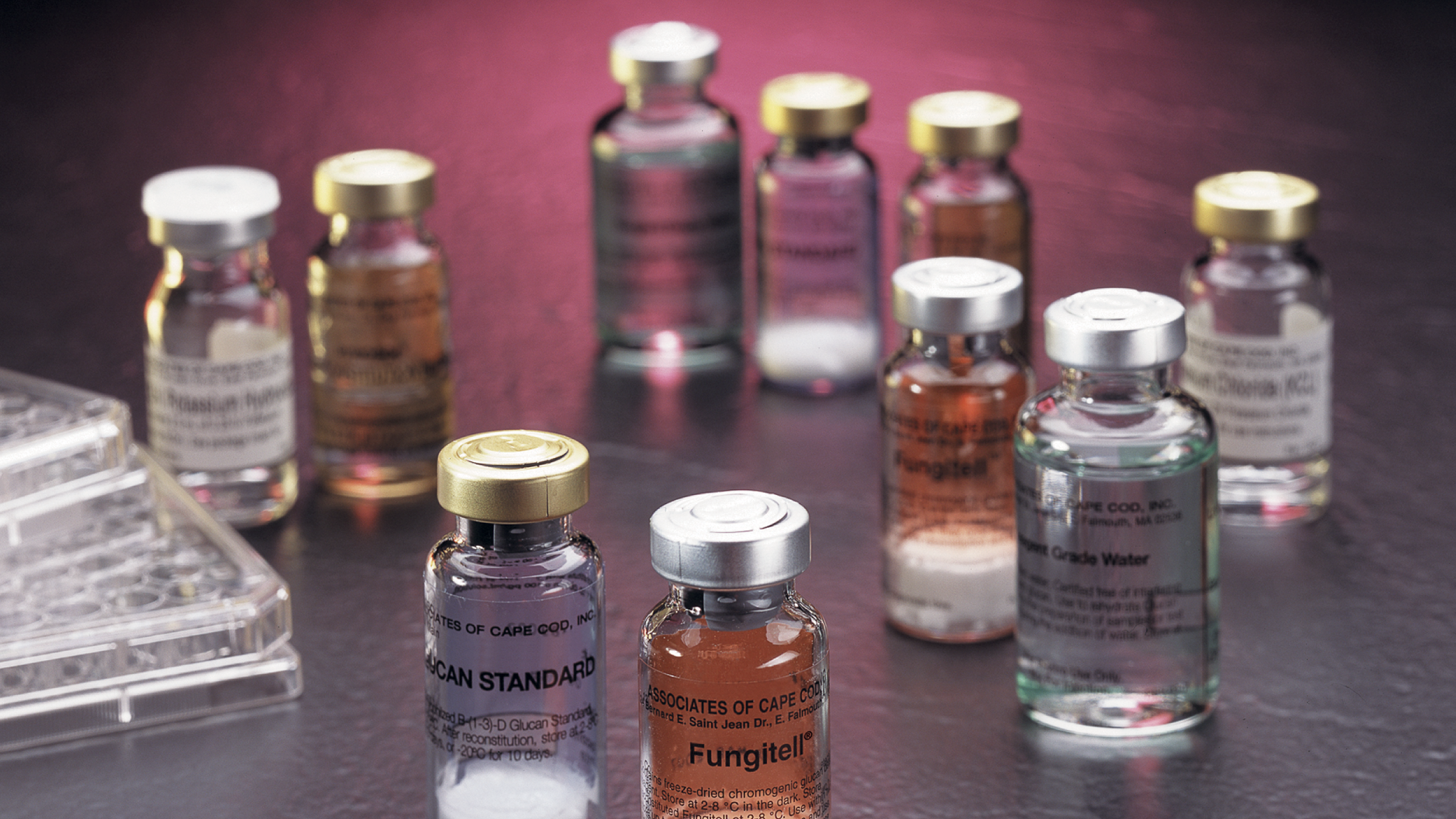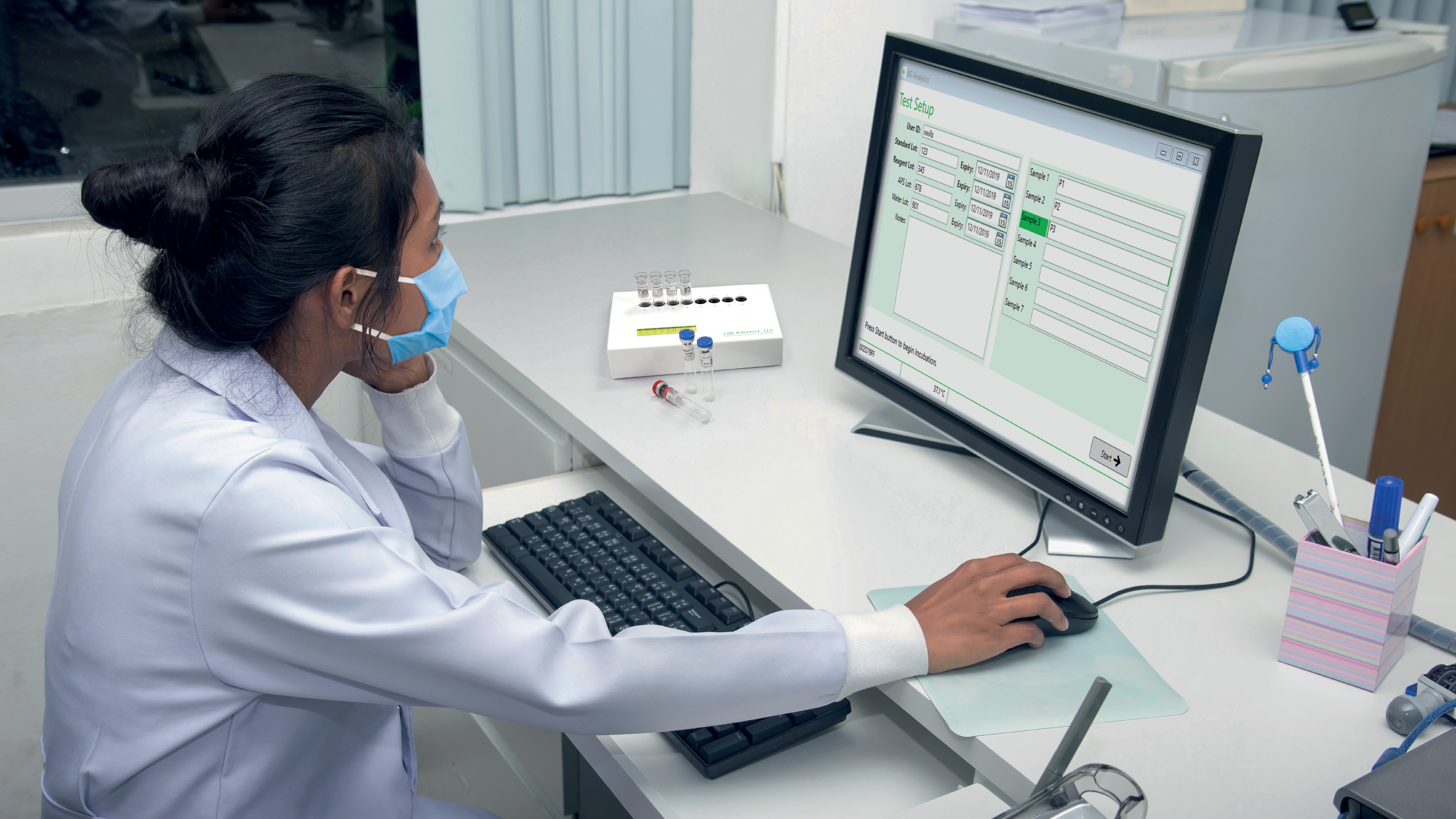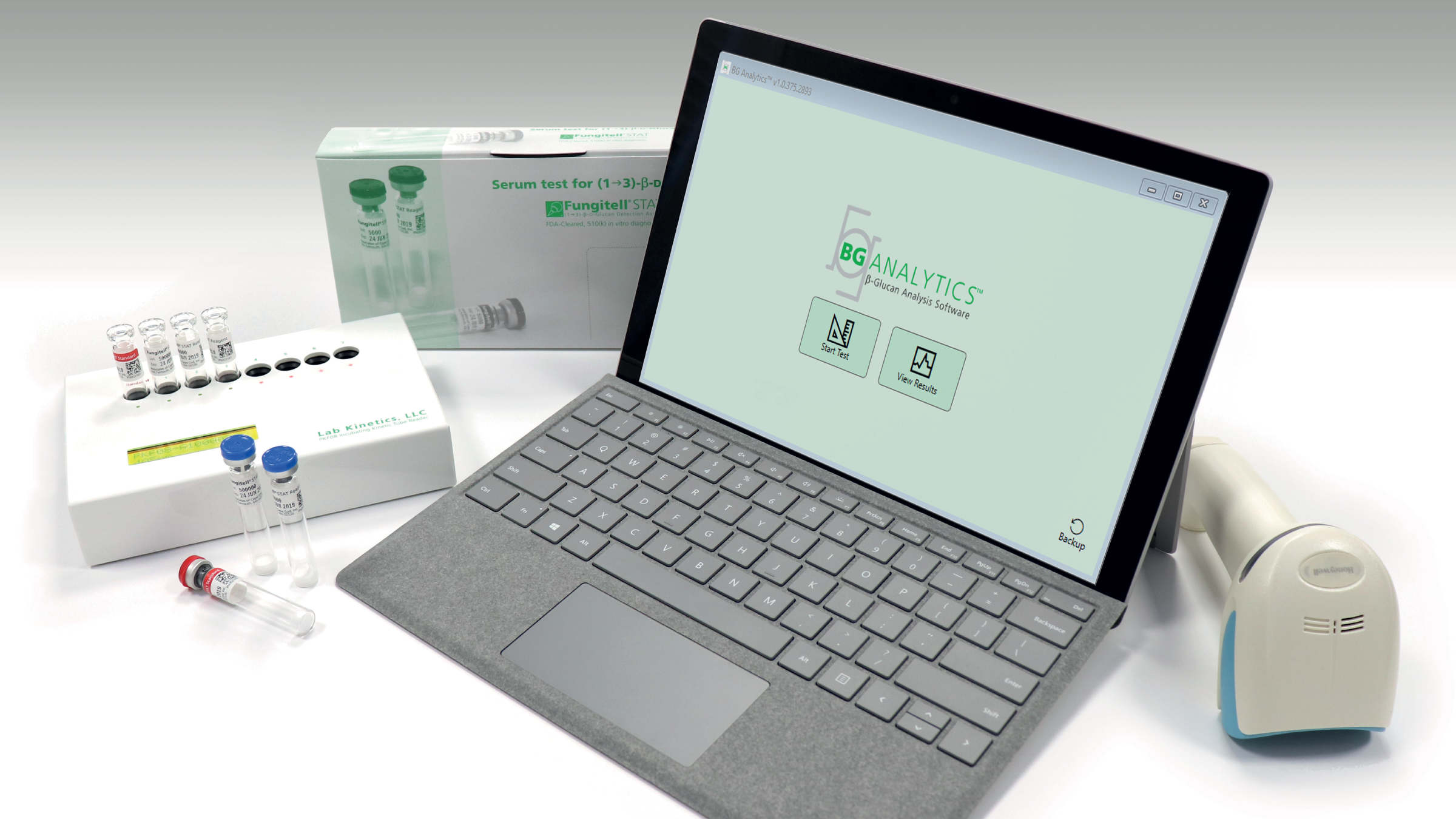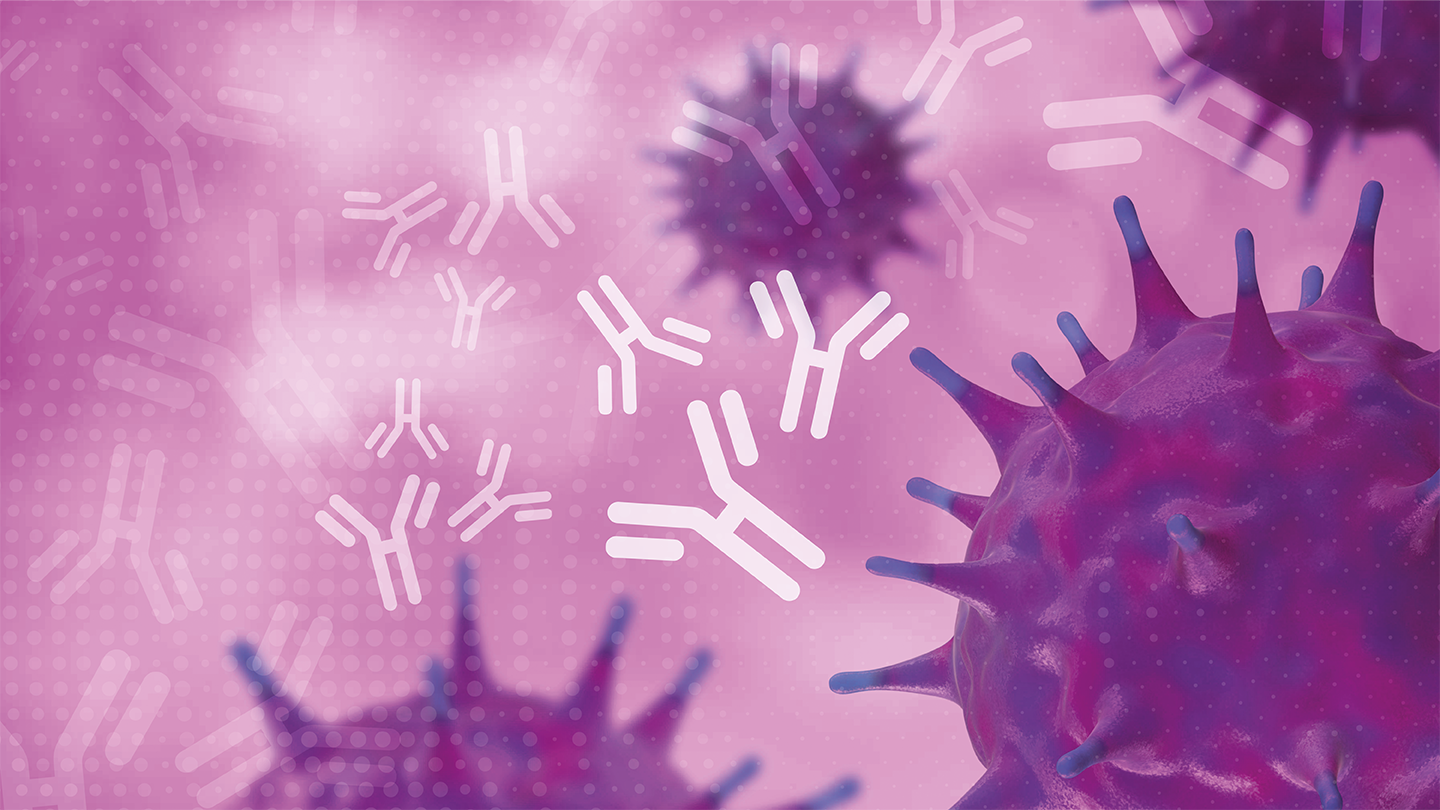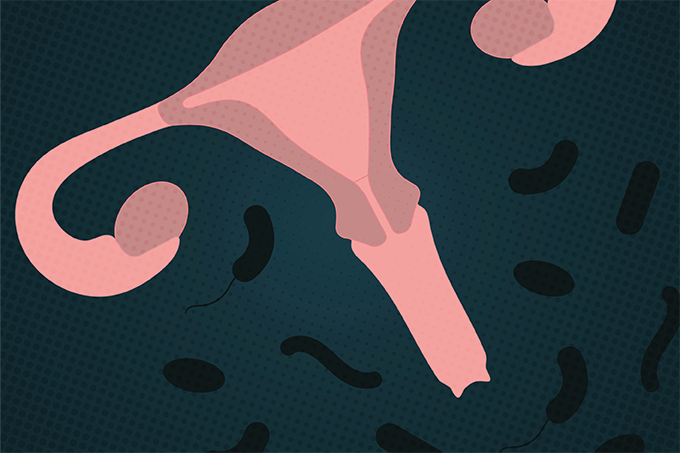Fast-Track IFI Screening with Fungitell® and Fungitell STAT®
How Fungitell and the new Fungitell STAT aid in the rapid and sensitive diagnosis of invasive fungal infections
Effective use of fungal culture, the “gold standard” for diagnosis of invasive fungal disease, is hampered by low sensitivity and a time to result measured in days. An increasing number of patients are also living with chronic conditions or experiencing periods of immunodeficiency or immunosuppression, making them more susceptible to invasive fungal infection (IFI). Whether patients are undergoing chemotherapy or living with HIV, IFIs cause severe illness and are associated with high morbidity and mortality. There is a growing need for faster and more sensitive diagnostic techniques to aid in the diagnosis of IFI.
Fungitell is the first and only FDA-cleared and CE-marked high-throughput in vitro diagnostic screening test for IFI. Fungitell detects small amounts of (1->3)-β-D-glucan (BDG), a major fungal cell wall component, in adult serum. There should be very little BDG circulating in healthy patients, therefore detection of elevated levels of BDG is highly suggestive of invasive fungal disease. Offering high sensitivity, high negative predictive value (NPV), and turn-around-time of 1-2 hours, Fungitell has nearly two decades of proven clinical use as a trusted diagnostic tool. The majority of clinically-relevant fungal species produce BDG (Candida, Aspergillus, Pneumocystis, Fusarium, Histoplasma, Coccidioides spp.), making it a near pan-fungal marker for invasive fungal disease.
Over the last 20 years, Fungitell has become crucial in managing patients from high-risk settings such as transplant and intensive care units (ICU), where correctly identifying patients with (or without) invasive fungal infections is key. Since its FDA clearance in 2004, there have been over 200 published peer-reviewed journal articles on the use of Fungitell in a number of different clinical settings, and research is on-going in a number of clinical areas.
The new Fungitell STAT assay utilizes the same quality reagent as Fungitell, but introduces a number of improvements. Fungitell STAT was developed to address the need for a single-sample test format with a simpler method. Fungitell STAT now makes BDG testing accessible to microbiology laboratories receiving up to 1-7 urgent patient samples for prompt testing. In laboratories where bench-space is limited, the compact Fungitell STAT tube-reader measures just 17.45 x 11.84 x 3.81cm. Purpose-built Beta Glucan Analytics (BGA) software presents qualitative information concerning patient serum BDG levels reporting results using a beta-glucan index (BGI).
Comparison data between Fungitell and Fungitell STAT was published in 2020, and showed a Positive Percent Agreement (PPA) of 99% and a Negative Percent Agreement (NPA) of 98%. Importantly, technician hands-on time was just 2 minutes per sample using Fungitell STAT, which, along with a 10-minute incubation step, and a 40-minute assay time, means single-samples have a time to result of less than 60 minutes (1). Fungitell STAT makes BDG testing more accessible to a larger number of institutions, whilst not compromising the quality and clinical confidence in the final result.
Healthcare providers who rely heavily on NPV to rule out disease require a test with high sensitivity – they work with high-risk patient populations and having the fewest false negative results is essential. A negative Fungitell or Fungitell STAT result provides very strong evidence that a patient likely does not have an IFI, and helps healthcare professionals confidently exclude a fungal diagnosis. Ruling out invasive fungal disease is crucial for clinicians in ICU or hematology/oncology, as these patient populations are highly susceptible to fungal infections. Prompt diagnosis or exclusion of fungal infection is therefore vital, as left untreated these infections progress rapidly and lead to severe complications. Alternately, a positive Fungitell result can help monitor the response of patients to antifungal treatments, with an increasing trend in serial BDG values suggestive of treatment failure, and a decreasing trend in BDG levels associated with good treatment response (2, 3). BDG testing also aids in the diagnosis of Pneumocystis jirovecii pneumonia (PCP) in individuals with compromised immune systems. In this patient group, Fungitell’s high sensitivity and specificity make it an indispensable minimally-invasive diagnostic tool.
With Fungitell and Fungitell STAT, laboratories are now able to aid in the diagnosis of fungal infection by providing BDG results in hours, compared to days for blood culture. Using Fungitell and Fungitell STAT permits a rapid, diagnostically driven approach to patient management allowing for the early initiation of appropriate antifungal treatment. This is fundamental in improving patient care and reducing the cost to healthcare providers of the inappropriate prescribing of unnecessary antifungals.
Utilizing Fungitell also aids in effective antifungal stewardship. Antifungal stewardship is becoming increasingly important in clinical practice as effective antifungal treatment options are limited, and drug resistant organisms (such as Candida auris) are increasingly being isolated from clinical specimens. By allowing healthcare providers to reduce the unnecessary use of antifungal medications, clinicians ensure that only patients who truly require antifungal therapy receive it. Effective antifungal stewardship will slow the development of antifungal resistance mechanisms, and minimize drug toxicity and drug-drug interactions. Careful antifungal use through stewardship programs is vital in preserving long-term drug effectiveness and improving patient outcomes.
References
- RL D’Ordine et al., “Performance characteristics of the Fungitell STAT, a rapid (1->3)-b-D-glucan single patient sample in vitro diagnostic assay,” Medical Mycology 0, 1 (2020). doi:10.1093/mmy/myaa028
- CR Sims et al., “Correlation of Clinical Outcomes with b-Glucan levels in Patients with Invasive Candidiasis,” Journal of Clinical Microbiology, 50, 2104 (2012). doi:10.1128/JCM.00773-12
- S Jaijakul et al., “(1,3)-b-D-glucan as a Prognostic Marker of Treatment Response in Invasive Candidiasis,” Clinical Infectious Diseases, 55, 521 (2012). doi: 10.1093/cid/cis456)
